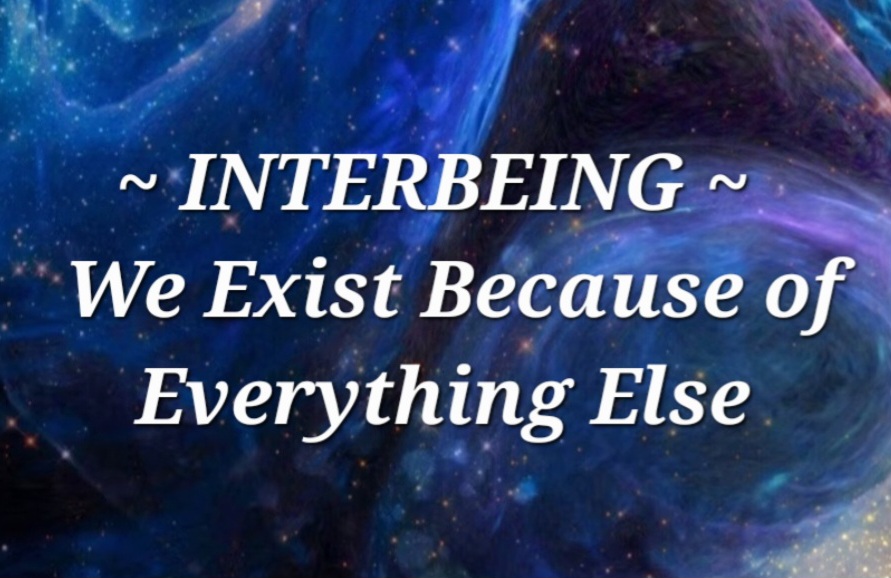I have recently finished publishing my latest manuscript – The Afterlife Experience. When I arrive at this stage, there is an unspoken gift to reflect more deeply on what has been written. Having discussed the associations of nature’s elements in my latest non-fiction, I have been reflecting on the Buddhist teachings of “right thinking” and “interbeing.”
It has been well over a year since I have talked or texted with my favorite Buddhist monk friend, Khenchen, who is an abbot to a cloistered monastery many miles from my home. Unfortunately, he has returned to his homeland in Cambodia to address several family issues. Yet; despite his physical absence, I can hear his comments regarding internal reflection in my mind and will share them now.
A primary discussion topic in The Afterlife Experience involves the connection with Nature’s energies. Khenchen has historically expressed how our understanding of how we link with Nature is one of the most precious gifts we can gain on any life journey. In most Buddhist communities that teaching is referred to as “the act of Interbeing.”
“Interbeing” is a deceptively humble idea. Having written about how all of us intimately attach to Nature’s elements, I have discovered how a new landscape of understanding is perfectly hidden within its unpretentious simplicity.
“Interbeing” describes all the activities that drive our planet. It defines the processes of inter-dependence and co-existence among all things. Without interbeing, Nature would fail to function. In human terms, interbeing recognizes the dependence of any one person on all other people as well as the four basic elements of Nature. Interbeing is the process that describes Nature as a living system in addition to well-functioning interactions that are expected for all people to fully function within a thriving human society.
While researching “The Afterlife Experience,” I was intrigued with the idea that humans often see themselves as being separate from Nature. Many assume that Nature is simply available; that water, air, fire, and earth are everyday amenities. The irony that I have discovered is that the opposite is true. Essentially, we are totally dependent on both Nature and each other to survive. Like every other creature on Earth, we are in a state of “interbeing” – a highly interconnected state of dependency with everything we touch or encounter.
As I began receiving the initial reviews of “The Afterlife Experience,” I catalogued the following: All of us need to embrace the fact that we are neither outside nor above Nature. We are fully enmeshed within it. As a result, every act that we do can affect everything else. The net result: The need to become more mindful of what we are doing to Nature’s elements. If not, we will be unable to see what we are doing to ourselves. Afterall, we are made of all the elements.
Often, we have no idea how the consequences of ignoring our connection with Nature might manifest. We are too occupied trying to predict how we might better control or use Nature’s basic four elements to our advantage. The resulting tragedy becomes increasingly apparent that we are blindly consuming and abusing Nature at a rate that destroys or alters Nature’s ecosystems. As such, we are leaving little for the next generations to build upon or correct.
In the end, I am left with this question: What is essential for the long-term survival of everything we cherish? Could it be that we need to embrace each day with a sense of “interbeing” regarding all life on Earth? Simply put, the act of embracing the “interbeing” with Nature’s elements should exist as a profoundly important tool for all of us. Sadly, today, it appears to only reside in the arsenal of the souls among us who are human warriors. They are unyielding individuals with a life mission and purpose to maintain a positive balance among all things and indemnify a future for all of us.


 Bud Megargee is a former senior behavioral healthcare executive; a Washington, DC., healthcare lobbyist; and an independently published, best-selling and award-winning author. He began writing after exploring Eastern philosophy and alternative medicine techniques in the professional treatment of emotional challenges at a Taiwanese Buddhist monastery.
Bud Megargee is a former senior behavioral healthcare executive; a Washington, DC., healthcare lobbyist; and an independently published, best-selling and award-winning author. He began writing after exploring Eastern philosophy and alternative medicine techniques in the professional treatment of emotional challenges at a Taiwanese Buddhist monastery.